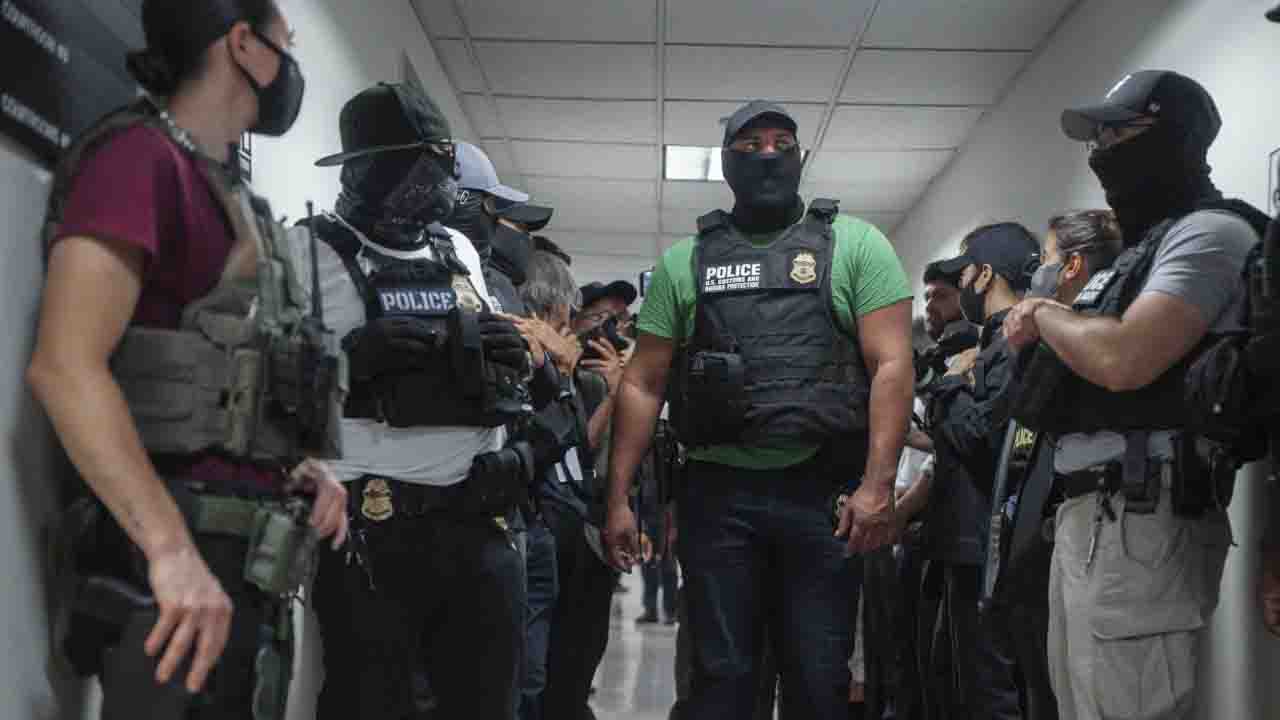SAN DIEGO (AP) — U.S. Immigration and Customs Enforcement (ICE) has significantly increased its use of a legal provision allowing the agency to detain individuals who entered the country unlawfully—without granting them a bond hearing.
Policy Shift Limits Release Options
In a July 8 memo obtained by The Associated Press, ICE Acting Director Todd Lyons informed staff that the agency would fully exercise its “exceptionally broad and complex” authority to hold migrants in custody. Under the new directive, those detained under this provision will no longer have the right to a bond hearing before an immigration judge. Release will only be possible if the Department of Homeland Security grants an exception.
The move, first reported by The Washington Post, marks a broader application of a 1996 law that had previously allowed many migrants to remain free while their cases progressed.
Biden and Trump Policies Clash in Response
When asked about the memo, Homeland Security spokesperson Tricia McLaughlin defended the policy shift, stating, “The Biden administration recklessly released millions of unvetted individuals into the U.S., exploiting legal loopholes. Now, President Trump and Secretary Noem are enforcing the law as intended to protect national security.”
McLaughlin added that ICE will have sufficient detention space following a new $170 billion border and immigration enforcement package signed by Trump. The funding includes $76.5 billion for ICE over five years—nearly ten times its current budget—with $45 billion allocated specifically for detention.
Legal Pushback and Wider Implications
Greg Chen of the American Immigration Lawyers Association reported that attorneys nationwide have seen clients detained under the new policy, including one individual who had lived in the U.S. for 25 years. While the policy does not affect those who entered legally and overstayed visas, it applies to anyone who crossed the border unlawfully.
Chen criticized the approach, saying, “The administration is rushing to implement mass detention without judicial review, transforming the U.S. into a country that routinely imprisons people.”
Matt Adams of the Northwest Immigrant Rights Project called the policy a “harsh interpretation of the law,” arguing it targets long-term residents with deep family ties and no criminal records. His group filed a lawsuit in March over similar detention practices in Tacoma, Washington.
Detention Numbers Set to Surge
Lyons acknowledged potential legal challenges in his memo but emphasized that ICE retains full discretion over detentions. He instructed agency lawyers to compile evidence supporting detention, such as flight risk or public safety concerns.
As of late June, ICE held approximately 56,000 detainees—well above its budgeted capacity of 41,000. With new funding, Homeland Security expects to detain an average of 100,000 people daily.
The policy follows the Laken Riley Act, signed by Trump in January, which mandates detention for migrants accused of crimes ranging from theft to violent offenses.











